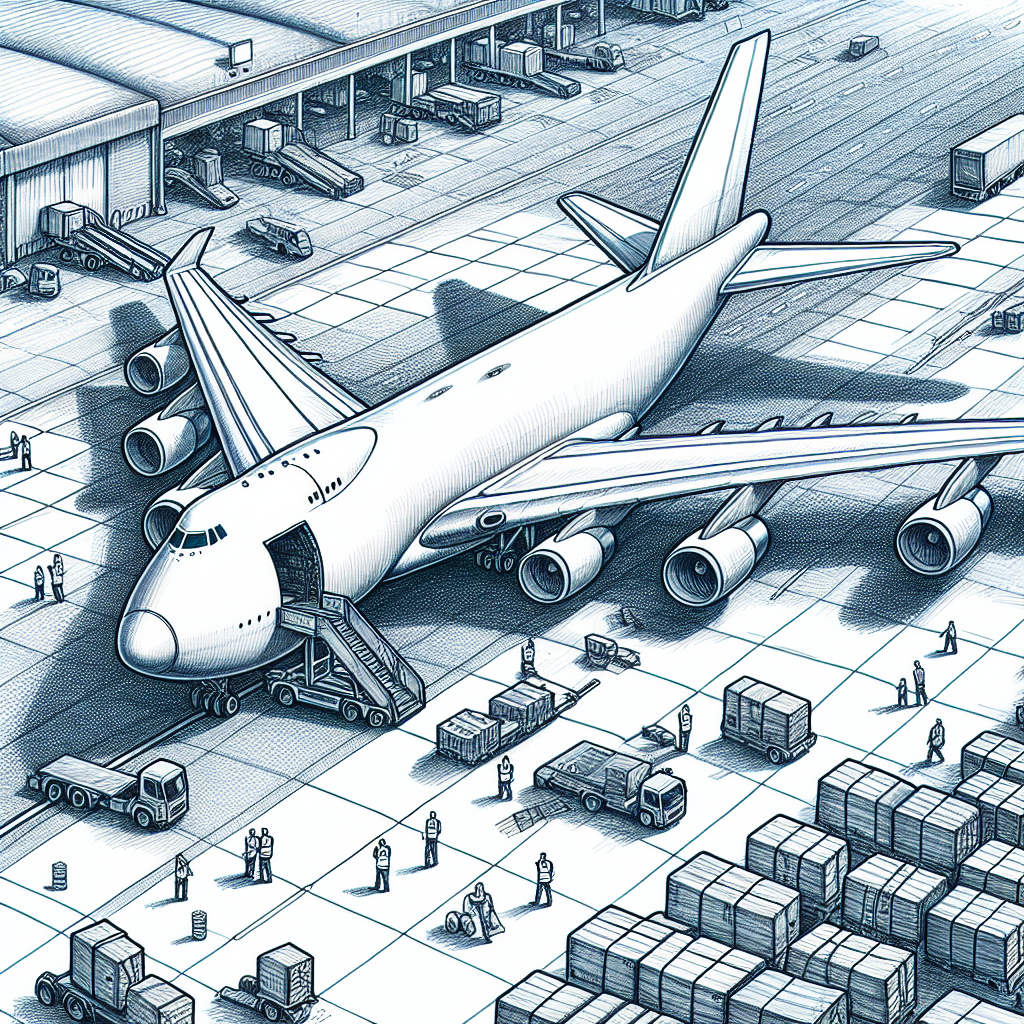Air Cargo Vital to Global Supply Chains: IATA Calls for Action on Safety, Security, Digitalization & Sustainability
Safety remains air cargo’s highest priority—particularly with the rising risk associated with lithium battery shipments.

- Country:
- United Arab Emirates
In an era of growing global interconnectivity and increasing economic and environmental pressures, the International Air Transport Association (IATA) has underscored the indispensable role of air cargo in ensuring supply chain resilience, driving global trade, and supporting humanitarian operations. Speaking at the opening of the 18th World Cargo Symposium (WCS) in Dubai, Brendan Sullivan, IATA’s Global Head of Cargo, laid out a strategic vision for the sector’s future, urging industry stakeholders and governments to rally behind key pillars: safety and security, digitalization, sustainability, and global trade alignment.
Air Cargo: A Lifeline for the Global Economy
Sullivan emphasized that whether transporting high-value consumer goods, facilitating cross-border e-commerce, or delivering lifesaving humanitarian supplies, air cargo continues to play a critical role in enabling economies and meeting human needs worldwide.
“The value of air cargo has never been clearer. To meet increasing customer expectations in a complex global environment, the industry must double down on its commitments to safety, security, digital transformation, and sustainable operations,” Sullivan stated.
Safety First: Zero Tolerance for Lithium Battery Violations
Safety remains air cargo’s highest priority—particularly with the rising risk associated with lithium battery shipments. As these batteries grow in demand and volume, so too does the danger of undeclared or improperly packaged goods, posing threats to aircraft and crew.
IATA has called on governments to intensify enforcement against rogue shippers and strengthen oversight in accordance with Annex 18 of the Chicago Convention, the global regulatory framework governing the air transport of dangerous goods.
“Our industry has invested significantly in training, certification, and detection technology. We now urge governments to uphold their end through robust enforcement and support for global safety standards,” said Sullivan.
Security Challenges: Unified, Intelligence-Driven Measures Needed
Recent incidents involving explosive devices hidden in air shipments have reignited concerns about fragmented and reactive government responses. IATA advocates for a coordinated, risk-based security model, emphasizing alignment across borders using standards outlined in Annex 17 of the Chicago Convention.
“Fragmented measures only weaken the system. Governments must share timely threat intelligence and work in close collaboration with industry stakeholders,” Sullivan stressed.
Air cargo stakeholders, including airlines and freight forwarders, are also being urged to prioritize proactive security assessments and integrate advanced detection technologies to mitigate evolving threats.
Digitalization: ONE Record Set to Transform Global Air Cargo Data
Digital transformation remains a top agenda for the industry. IATA reaffirmed its commitment to ONE Record, the industry-wide standard for end-to-end digital data exchange, aimed at boosting transparency, operational efficiency, and regulatory compliance.
Set to become the preferred method of data sharing by January 2026, ONE Record is already supported by:
-
Airlines representing 72% of global air waybill volumes
-
Over 100 IT solution providers
-
Around 10,000 freight forwarders worldwide
“ONE Record marks a fundamental shift in how the cargo supply chain shares and manages data. Full value will only be realized when adoption is universal and governments integrate it into regulatory systems,” said Sullivan.
Sustainability: Strong Commitment, But SAF Support Urgently Needed
The cargo industry is actively embedding eco-conscious practices across its operations, from reducing packaging waste and single-use plastics to implementing circular economy principles. But the major environmental challenge—cutting carbon emissions—still requires accelerated progress.
A central pillar of air cargo's green strategy is the ramp-up of Sustainable Aviation Fuel (SAF). With the recent launch of the SAF Registry by CADO, stakeholders can now track and certify SAF usage to foster a transparent global market. Furthermore, IATA's upcoming CO2 Connect for Cargo tool aims to improve emissions tracking and SAF accounting across the cargo supply chain.
Despite these efforts, the production and use of SAF remain far below necessary thresholds.
“We are committed to achieving net-zero carbon emissions by 2050. But without large-scale SAF adoption, this goal remains out of reach. Governments need to replicate the successful playbooks used to scale solar and wind industries,” said Sullivan, criticizing mixed policy signals and insufficient investment by fuel producers and aircraft manufacturers.
Trade Tensions: Air Cargo Remains a Constant Amid Uncertainty
In a world grappling with intensifying trade disputes and shifting geopolitical alliances, Sullivan reiterated IATA’s stance that free, fair trade is a cornerstone of economic prosperity. He cautioned against protectionist policies and emphasized air cargo’s role in delivering essential goods regardless of political headwinds.
“Trade drives prosperity. Every time borders close or barriers rise, it’s businesses, consumers, and communities that suffer. Air cargo will always be there to deliver what people need,” said Sullivan.
A Call to Action: Shared Responsibility for a Resilient Future
In closing, Sullivan called for renewed cooperation between industry leaders, regulators, and governments, highlighting that real progress requires collective effort across every segment of the supply chain.
“Air cargo is more than just a logistics solution—it’s a strategic enabler of global development. The time to act is now. We need harmonized safety enforcement, unified security frameworks, bold digital innovation, and unwavering sustainability support,” he concluded.
As the world economy continues to evolve, so too must the air cargo sector, ensuring it remains resilient, reliable, and responsible in the face of modern challenges.










